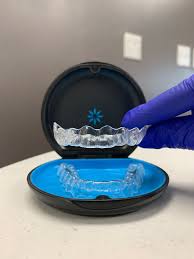
Introduction
PRP teeth extraction is creating a buzz in the dental world. If you’re facing a tooth extraction and want a smoother recovery, you might wonder if this innovative approach is right for you. But before you jump in, let’s explore what PRP teeth extraction is all about, its benefits, drawbacks, and whether it’s worth the investment.
Understanding PRP (Platelet-Rich Plasma)
What is PRP?
Platelet-rich plasma is derived from your blood and is rich in growth factors. These growth factors aid in tissue repair, making PRP a valuable tool in medical and dental treatments.
How is PRP Used in Dentistry?
In dentistry, PRP accelerates healing after procedures like extractions, implants, and surgeries. It promotes soft tissue repair, reduces inflammation, and ensures quicker recovery.
The Process of PRP Teeth Extraction
Preparation Phase
Before the extraction, a small amount of your blood is taken. This blood is processed in a centrifuge to separate the platelet-rich plasma, which is then prepared for application.
The Extraction Procedure
The dentist extracts the problematic tooth while ensuring minimal discomfort. Afterward, PRP is applied to the extraction site, enhancing clot formation and jumpstarting the healing process.
Post-Extraction Care with PRP
Post-procedure, PRP continues to work by reducing swelling, promoting tissue regeneration, and shortening recovery time.
Advantages of PRP Teeth Extraction
Faster Healing
PRP significantly speeds up the body’s natural healing process, helping you bounce back faster.
Reduced Risk of Complications
The use of PRP minimizes risks like infections, dry sockets, and prolonged pain.
Improved Comfort and Recovery
Patients report less discomfort and better overall recovery experiences compared to traditional methods.
Disadvantages of PRP Teeth Extraction
Higher Costs
PRP procedures are typically more expensive than traditional extractions due to advanced technology and expertise required.
Potential Limitations
Not every patient may experience the same level of benefits. PRP is most effective when used in specific cases.
Specialized Expertise Required
Dentists performing PRP treatments must have specialized training, which may limit its availability in some areas.
Comparing PRP to Traditional Extraction Methods
Healing Time
PRP offers quicker healing, making it a preferred choice for those seeking faster recovery.
Cost Analysis
While PRP may have a higher upfront cost, it could save you money in the long run by reducing the need for additional treatments.
Patient Experience
Patients often find PRP extractions more comfortable, with less downtime and fewer post-extraction issues.
Who Should Consider PRP Teeth Extraction?
Ideal Candidates
Patients who want an enhanced recovery experience, such as those undergoing multiple extractions or dental implants, are great candidates.
Cases Where PRP Might Not Be Suitable
PRP may not be the best option for individuals with certain medical conditions or those unwilling to bear the additional costs.
The Role of Technology in PRP Treatment
Advancements in PRP Technology
Continued innovations in PRP processing are making the procedure more efficient and accessible.
Future Implications for Dentistry
PRP is paving the way for more regenerative dental treatments, potentially transforming oral healthcare.
Real-World Results and Patient Feedback
Testimonials
Patients who opted for PRP often highlight reduced pain and quicker recovery.
Observed Trends in Recovery
Data shows PRP treatments result in consistently better outcomes in terms of healing time and comfort.
Tips for Patients Considering PRP Teeth Extraction
Choosing the Right Dentist
Look for a dentist experienced in PRP treatments with positive reviews from previous patients.
Questions to Ask During Consultations
• Is PRP suitable for my case?
• What can I expect during and after the procedure?
• Are there any risks specific to me?
Preparing for the Procedure
Follow your dentist’s guidelines, such as stopping certain medications or eating a balanced meal before your appointment.
Common Myths About PRP Teeth Extraction
Myth-Busting Misconceptions
Some believe PRP is experimental or risky, but it’s a well-researched and proven method.
Evidence-Backed Clarifications
Numerous studies back the safety and effectiveness of PRP in enhancing dental recovery.
Conclusion
PRP teeth extraction is a game-changer for many patients, offering faster healing, reduced discomfort, and better outcomes. While it may not be suitable for everyone, those looking for a more comfortable recovery process should certainly consider it. Discussing the procedure with your dentist can help determine if it’s the right fit for your needs.
FAQs About PRP Teeth Extraction
How much does PRP teeth extraction cost?
The cost varies based on location and provider but is generally higher than traditional methods.
Is PRP safe for everyone?
PRP is safe for most patients but consult your dentist if you have blood-related conditions.
How long does PRP recovery take?
Recovery with PRP is typically faster, often taking about 1-2 weeks for complete healing.
Can PRP be used for wisdom teeth extractions?
Yes, PRP is highly effective for wisdom teeth extractions and can reduce complications.
Are there side effects of PRP treatment?
Side effects are rare and minimal, such as mild swelling or discomfort at the site.
I